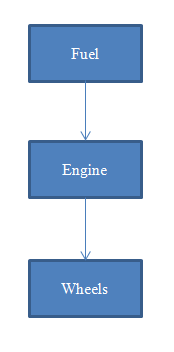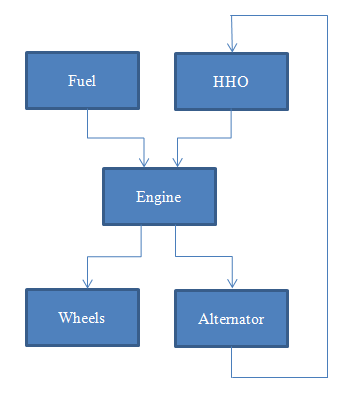Book Review - The Tangled Bank
It is interesting to contemplate a tangled bank, clothed with many plants of many kinds, with birds singing on the bushes, with various insects flitting about, and with worms crawling through the damp earth, and to reflect that these elaborately constructed forms, so different from each other, and dependent upon each other in so complex a manner, have all been produced by laws acting around us. These laws, taken in the largest sense, being Growth with Reproduction; Inheritance which is almost implied by reproduction; Variability from the indirect and direct action of the conditions of life and from use and disuse: a Ratio of Increase so high as to lead to a Struggle for Life, and as a consequence to Natural Selection, entailing Divergence of Character and the Extinction of less-improved forms. Thus, from the war of nature, from famine and death, the most exalted object which we are capable of conceiving, namely, the production of the higher animals, directly follows. There is grandeur in this view of life, with its several powers, having been originally breathed into a few forms or into one; and that, whilst this planet has gone cycling on according to the fixed law of gravity, from so simple a beginning endless forms most beautiful and most wonderful have been, and are being, evolved.
So ends Darwin's Origin of Species, giving the inspiration for the title of Carl Zimmer's latest book, The Tangled Bank: An Introduction to Evolution. It is described as a textbook on evolution for non-biology majors, and it is very good.
The term, 'evolution', is pretty broad. In general, when people talk of biological evolution, there are two broad categories they're referring to. The first is the concept of common descent with modification - that all life on this planet is related, and that populations of organisms change over time. The second is the theories describing how that works, with natural selection being the most famous. Pretty much every book that covers evolution will cover both areas to some extent, but often times they will focus on one area over the other. The Tangled Bank covers more of the latter subject. Of course, it uses examples, but it is more about how evolution works rather than a fossil by fossil account of the evidence for common descent (for that type of book, read Donald Prothero's Evolution: What the Fossils Say and Why It Matters - also, realize that there's much more evidence for evolution than just fossils).
Let me give an example of one of the concepts I learned about - Hardy-Weinberg Equilibrium. This term is probably familiar to biology majors, but it's not something us non-biologists generally read about in most popular books or magazine articles on evolution. The concept has to do with allele frequency. As a refresher, an allele is a variation of a gene. Think back to your high school biology class, and the genetic experiments of Gregor Mendel. For example, Mendel discovered a certain gene* that controlled pea color - one version would make them green, while the other would make them yellow. Each version is called an allele. Remember further, that us eukaryotes carry two copies of a gene (actualy, at least two - it can get a bit more complicated than this). So, individual plants in a population of all green peas might all carry two copies of the green allele - GG, and individual plants in a population of all yellow peas might all carry two copies of the yellow allele - YY. Now, if you were to bring those two populations together, the alleles woud start mixing, and you'd end up with three different combinations that the plants could have - GG, YY, and GY (GY and YG are the same thing). What Hardy-Weinberg equilibrium tells us, is that according to just random mating and chance distribution, these allele combinations should all be present in certain ratios. In this example, half of the plants would likely be GY, one quarter would be GG, and the remaining quarter would be YY. But what if you checked up on your pea population, and found that it didn't match the Hardy-Weinberg equilibrium? What if less than a quarter of the plants were GG, and more than a quarter were YY? Well, then we could conclude that something about the Y allele was advantageous to the plants, and that natural selection was pushing the population to have more plants with the Y allele.
This concept of Hardy Weingberg equilibrium can be applied to more complicated scenarios. It doesn't have to be just two alleles, and the initial distribution doesn't have to be 50/50. However, for any combination, the Hardy Weinberg equilibrium is the distribution you'd expect if there weren't any natural selection, and measuring how much the actual distribution varies from the Hardy Weingberg equilibrium is a measure of how strong the selection is.
To me, that's a pretty interesting concept, and it wasn't something I'd given much thought to before reading Zimmer's book. However, the book didn't go into much more detail than what I just gave in my summary. If you're not of a technical bent, that may be all you need. I realize that Zimmer's goal was to provide a book for non-biology majors, so maybe that's all the detail he felt was necessary. However, to someone like me, who may not be a biology major but wouldn't mind seeing a little light math, Zimmer's explanation was a little too superficial. I mean, if you follow that Wikipedia link I provided and read the explanation of Hardy Weinberg equilibrium, the math isn't all that hard. It's just a bit of algebra. Maybe as an engineer who works with equations all day long I'm a bit biased, but it's not as if you need to understand any calculus or differential equations to follow the basics of Hardy Weinberg equilibrium.
I can't discuss this book without mentioning the illustrations. Practically every page of the book has a figure or a graph. I'm sure that the printing cost associated with this contributed to the $50 price tag for the book, but it really makes it easy to understand certain concepts that would be difficult to get across with just words.
This book was published right around the same time as Richard Dawkins' The Greatest Show on Earth: The Evidence for Evolution, so there were inevitably comparisons. But the truth is that they're just not the same kinds of books. In my discussion above on the broad meanings of evolution, I said that Zimmer's book covered more the theories of evolution. Dawkins' book was more of a look at the evidence itself. Zimmer's book was a textbook with color illustrations on each page, while Dawkins' book was a popular book with few illustrations. Comparing the two is comparing apples to oranges.
If you'd like to get more of a taste of the book, I've found two excerpts available for download online. Chapter 1, Evolution: An Introduction is availabe from Carl Zimmer's own site. Chapter 10, Radiations and Extinctions is available from the National Center for Science Education. You can also read Zimmer's announcement of the book on his blog, to hear his intentions in his own words.
All in all, The Tangled Bank was very good. It was a nice broad introduction to many of the theories and mechanisms of evolution, but without getting too technical for those of us that don't plan to go into careers in biology. Unfortunately, being a textbook, it's a bit pricey. You may try going to your library to check it out, find it used, or maybe be lucky enough to be able to borrow it from a friend. However you manage to get your hands on a copy, I definitely recommend this book.
*Mendel's insight was that there were units of heredity, now known as genes, as opposed to the prevailing concept at the time of blending inheritance, but he didn't actually know the mechanism responsible. It wasn't until later that other scientists discovered that genes were contained on chromosomes, and later yet that scientists discovered that chromosomes were made of DNA.


